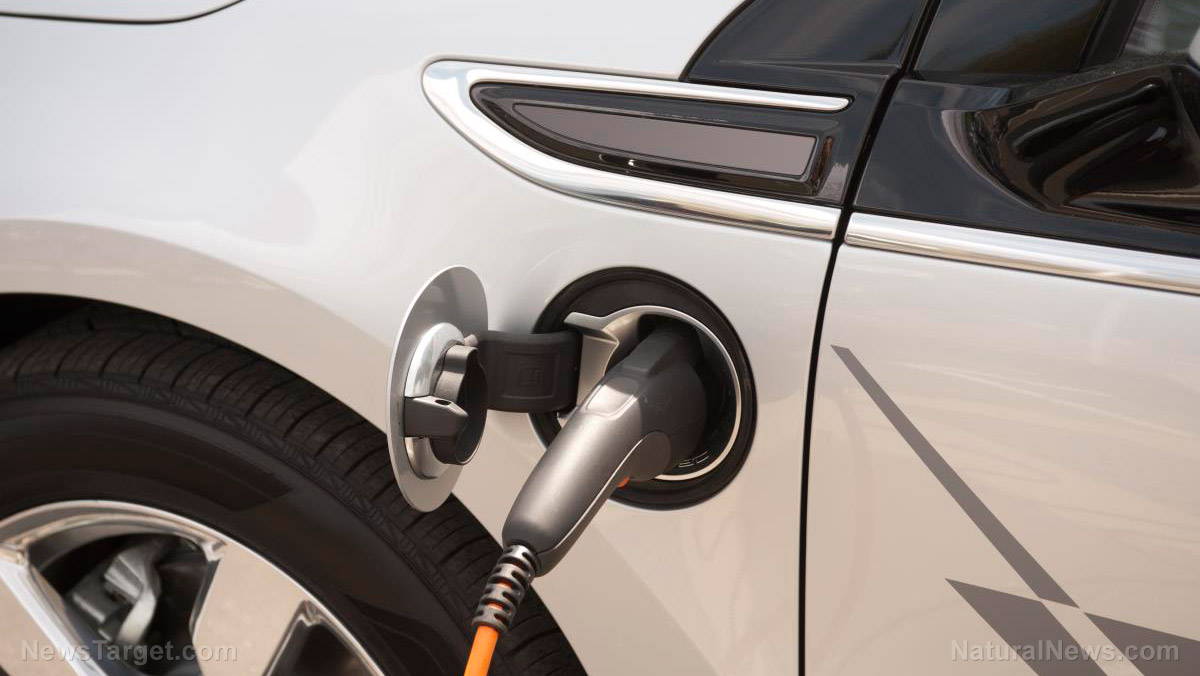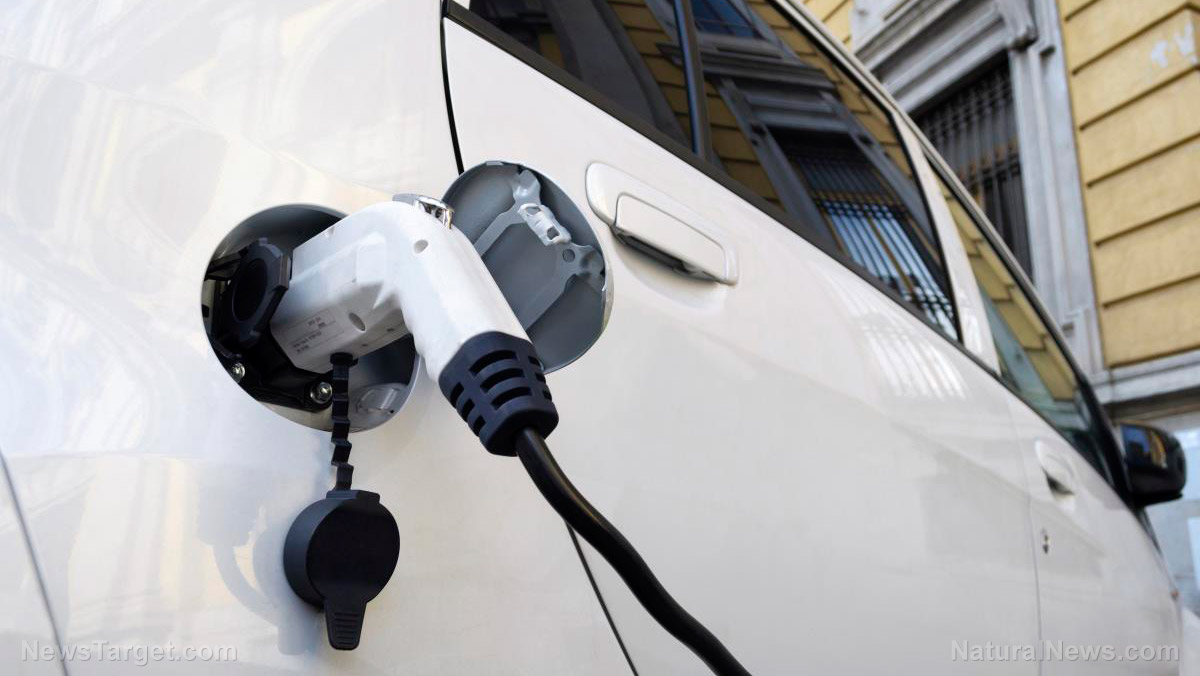GO GREEN, GET BROKE: Test finds new electric Hummer costs over $100 to charge – more than it costs to fill up most gas tanks
08/24/2022 / By Arsenio Toledo

A test has found that it costs over $100 to fully charge the battery of an electric pickup truck, far more than it would cost to fill up the gas tank of a large gas-powered truck of similar quality.
In 2010, General Motors stopped manufacturing Hummers, a brand of pickup trucks and sport utility vehicles (SUVs) that were massively criticized for being massive gas-guzzlers. In late 2020, GMC, a division of General Motors, came out with the new GMC Hummer EV, a line of electric battery-powered pickup trucks and SUVs. (Related: Range test finds gas pickup can tow 2,000-lb trailer 2.8 times farther than new electric pickup.)
When news broke out that General Motors was once again manufacturing Hummers, the vehicle’s popularity made pre-orders of its electric successor sell out within just 10 minutes of the announcement. However, a test conducted by the automobile publication Car and Driver has proven that the new Hummer EV is far more costly to drive than a regular gas-powered car.
“GM is marketing the Hummer in this EV world as the ‘Hummer of the Future,'” wrote Peter Corn for MotorBiscuit. “While it may be more environmentally friendly – depending on where the electricity comes from – it actually doesn’t appear very cost- or time-effective.”
Keeping electric vehicles charged more costly than keeping gas tanks full
For Car and Driver’s charging test, the publication took a 2022 GMC Hummer EV in for a fast-charging session at an Electrify America Station. They took a Hummer EV with about 10 percent charge remaining to 90 percent charge.
The current rate at the station was $0.43 per kilowatt-hour (kWh). Bringing the Hummer EV to 90 percent charge cost the publication $81, including sales tax.
“Extrapolating from that, to go from 0 percent to 100 percent charge at a DC fast-charging station would cost over $100,” wrote Joey Capparella, senior editor of Car and Driver.
Capparella further noted that it took an hour and 49 minutes for the fast-charging station to bring the Hummer EV from 10 to 90 percent charge, with an average 98 kW of power running through the station to the car for that entire time.
The Hummer EV’s total battery capacity is 212.7 kWh. Charging it at the cost of $0.43 per kWh doesn’t quite come to $100. However, this doesn’t take into account the charging losses.
As Capparella noted, adding an 80 percent charge to the Hummer EV would only take 170.16 kWh. But in reality, it took 177.9 kWh to give the truck 80 percent charge, or about five percent more than what made it into the car’s battery.
The writer further noted that charging costs vary from charging provider and sales taxes vary by state. In Michigan, taking into account the sales tax of six percent and a charging loss of five percent, it would cost around $101.8 to fill up the Hummer EV from empty to 100 percent charge.
“But the point remains: Although GM has attempted to recast the Hummer for the electrified era, that doesn’t mean it’s cheap to fuel,” Capparella wrote. “It is, after all, a 9,640-pound, 1,000-horsepower, four-wheel-drive pickup truck that costs six figures, no matter what it’s powered by.”
FlyingCars.news has more on electric vehicles and their deficiencies.
Watch this video from TFL Truck as it conducts a range test proving that gas-powered pickup trucks can take heavy trailers farther than electric battery-powered trucks.
This video is from the Daily Videos channel on Brighteon.com.
More related stories:
Electric vehicles have more quality issues than combustion engine cars, new study finds.
Contrary to what people believe, electric vehicles are not cheaper than gas-fueled vehicles.
Study: 1 out of every 5 California electric car owners switching back to gas.
Sources include:
Submit a correction >>
Tagged Under:
cars, electric cars, electric vehicles, electricity, future tech, gas powered cars, General Motors, GMC Hummer EV, Hummer, inventions, product testing, products, real investigations, truth
This article may contain statements that reflect the opinion of the author
RECENT NEWS & ARTICLES
COPYRIGHT © 2017 INVENTIONS NEWS




















